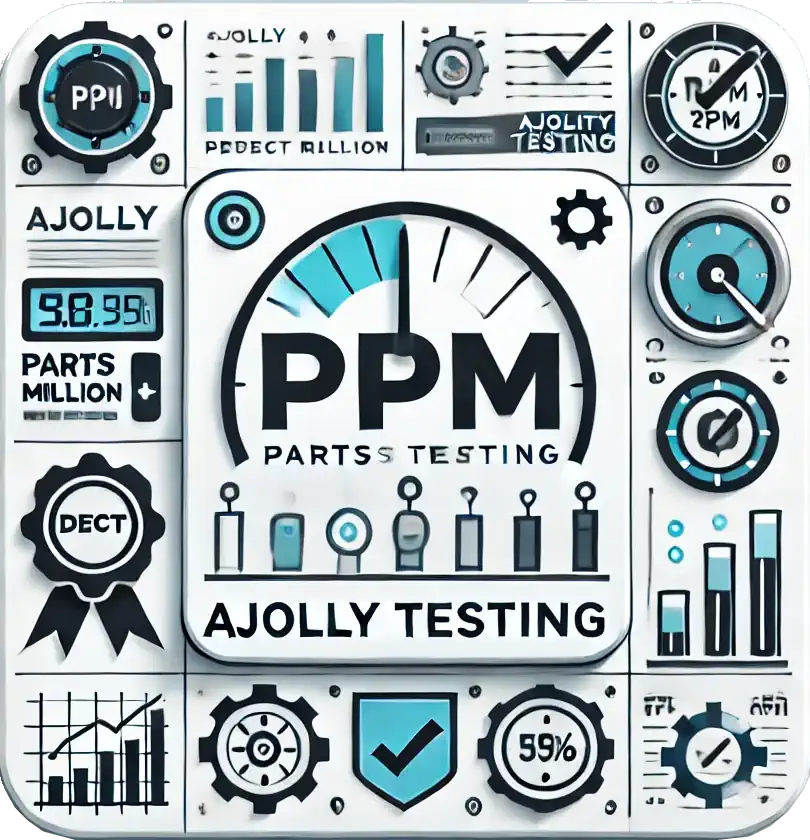
PPM means Parts Per Million (in English Parts Per Million) and is a metric used to measure the defect rate in a production process or testing system. PPM indicates how many defective parts exist per million units produced, being one of the main performance indicators in quality.
The lower the PPM, the greater the customer confidence and the robustness of the process.
🧩 How to calculate PPM?
Example:
If 5 defective parts were detected in a batch of 10,000 units, the PPM will be:
🎯 When to use PPM?
- Statistical Process Control (SPC)
- Supplier monitoring
- Comparison of production lines or shifts
- Reports for OEM customers
- After-sales and field analysis (RMA)
🔧 How AJOLLY Testing helps reduce PPM
AJOLLY Testing develops test benches focused on early fault detection, repeatability, traceability, and reliable automation, essential factors to keep PPM under control.
🛠️ Tests with high functional coverage
- Functional, electrical, visual, and automated communication test bench
- Simulation of real operating environment (voltage, current, digital/analog signals)
- Validation of DUT with statistical criteria and traceable measurement
📊 Data generation and analysis
- Automatic recording of results by serial number, operator, batch, and version
- Real-time PPM dashboards with filters by product, station, or shift
- Integration with MES and industrial ERP systems
📁 Technical support for continuous improvement
- Pareto and Top Failures analysis for corrective actions
- Traceability and failure repetition tools (Silver Units)
- Compliance with IATF 16949, ISO 9001, FDA, ANVISA requirements
With AJOLLY Testing, PPM control is no longer a statistic — it becomes a tool to enhance product quality and protect your brand.
